Time to read [6 minutes]
Takeways
- NYC Multiple Dwelling Law strengthened by Local Law 18 in 2023, dropping Airbnb’s NYC rental share from 4% to 0.3%
- The crackdown satisfied hotel owners (with hotel rates rising 7%) and permanent residents, who no longer face rotating short-term visitors next door
- Despite the intent to lower rents and increase affordability, these laws did not make NYC housing more affordable
There’s been a lot of turmoil around the use of Airbnbs everywhere, including NYC. The Manhattan rental market is still setting new price records despite the promise of the crackdown on Airbnb. July’s median Manhattan rent was $4,700. What happened in NYC is a lesson for other urban markets. There was a great Wall Street Journal piece on this (obviously not because I was in it, ha.) New York’s Airbnb Crackdown, in Force for Two Years, Hasn’t Improved Housing Supply [gift link]. A ban on stays of less than 30 days in New York was created in 2010 under the Multiple Dwellings Law (MDL), two years after Airbnb was founded. The hotel industry saw Airbnb cutting into their profits, and homeowners were sick of rotating late-night guests in adjacent apartments. Local Law 18 (LL18) was enacted in 2022 to strengthen MDL, and it went into full effect on September 5, 2023 despite being challenged by Airbnb. Short-term stays of less than 30 days were not allowed, and landlords who violated this rule were subject to fines of $5,000. Manhattan listing inventory for rentals in September immediately jumped 61.2% as Airbnb landlords exited their rental pool into traditional rentals. Manhattan rents had set new records in the previous July and August, so NYC’s eagerness to crack down on Airbnb practices was high to create greater affordability. Two years have passed, and rents are higher than ever, making this effort for improved rental affordability a bust. However, LL18 been a win for the hotel industry as well as co-op and condo apartment owners who don’t have a procession of tourists bunking in adjacent units, coming and going at all hours of the night.
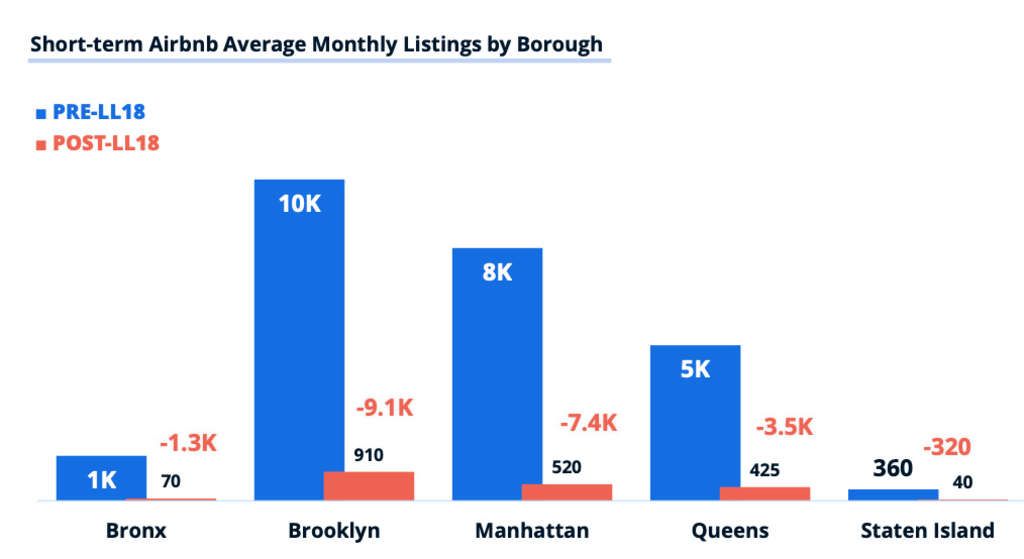
Airbnb Tenants Went From 4% to 0.3% Of Total
Airbnb tenants accounted for 38,500 units in 2023, so based on 1,000,000 open market apartments in NYC, that’s less than 4% of supply. NYC points out that there are also approximately 40,000 vacant apartments, which would represent another 4%. The vacant apartment glut was made worse by the 2019 rent law, which eliminated the economic incentive for multi-family landlords to renovate apartments whose long-term tenants moved out and virtually eliminated landlords’ ability to convert their rental buildings to co-ops or condos. Two years later, there are now about 3,000 apartments legally operating as short-term stays, or about one-tenth of the amount seen in 2023.
Hoteliers Got What They Wanted: Higher Room Rates
Airbnb tenants were looking for alternatives to generic hotel rooms during their visit. Tourists sought these alternative lodging solutions and became a real force in the market. Hotels have a lot more regulatory oversight and pay hotel tax, which makes them less competitive on the Airbnb rate. They led a remarkable lobbying effort for years to combat the Airbnb phenomenon, and it ultimately proved successful. Since the new law, hotel rates are up 7% to $283 per night.
Don’t Get A New Neighbor Every Other Night
One of the detrimental aspects of the proliferation of Airbnb rentals was the lack of safety and privacy. Having a new guest stay next door every other day, without concern for adjacent residents, was problematic. There was a rotating cast of guests in the hallways and amenities like health clubs and pools. They were less concerned about community rules and had no accountability. If I bought a condo and had an adjacent neighbor who was an illegal Airbnb landlord, it would diminish the value of my unit if I didn’t know this was my neighbor before I purchased. They’re existence negatively reflects on the management and board of the building that its leadership efforts were weak.
Final Thoughts
NYC’s focus has been on protecting its housing stock for people who live in the city. In other housing markets, reducing short-term stays doesn’t make housing more affordable because there isn’t a large enough concentration of Airbnb landlords to skew the market. The implementation of the Airbnb law in New York had no apparent impact on making rents more affordable, as reflected by July’s record median rent of $4,700. However, there are many other factors contributing to higher rents, such as a lack of supply and high mortgage rates. NYC was very anxious to get this law passed and probably oversold the “improves affordability” argument.
The Actual Final Thought – This is what Airbnb landlords think of LL18 (NSFW)

Upcoming Presentations
• September 16, 11 am ET / In-Person =================================

• September 18, 3 pm ET / Zoom ====================================
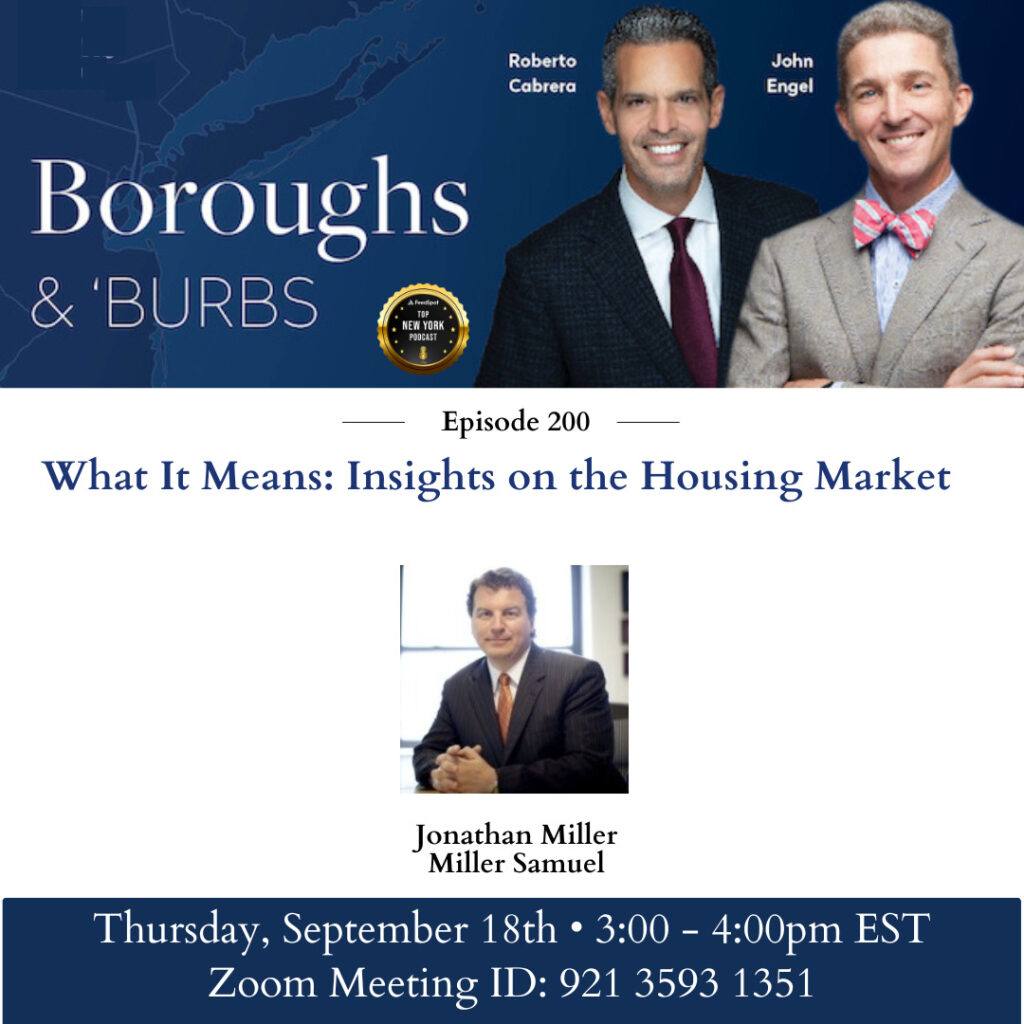
• September 29 / In-Person ========================================
HGAR’s IMPACT: The Member Experience

I’m excited to speak at IMPACT: The HGAR Member Experience on September 29. I’ll be joining real estate professionals from across the region to explore what’s next in the housing market, economic opportunities and building community. Join me and be part of the conversation that’s shaping what’s next. Learn more and register.
[Podcast] What It Means With Jonathan Miller
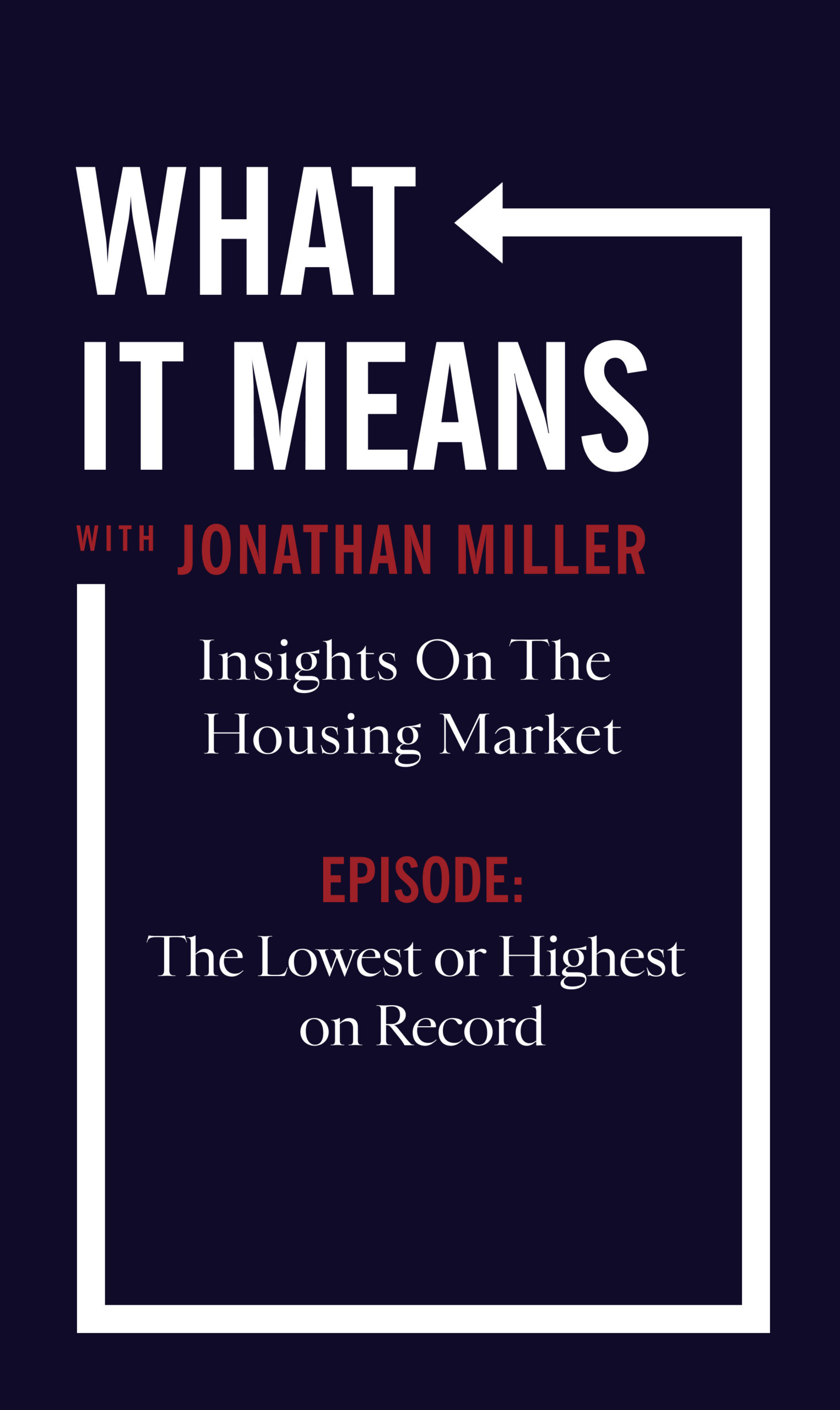
The Lowest or Highest on Record episode is just a click away. The podcast feeds can be found here:
Apple (Douglas Elliman feed) Soundcloud Youtube
Did you miss the previous Housing Notes?
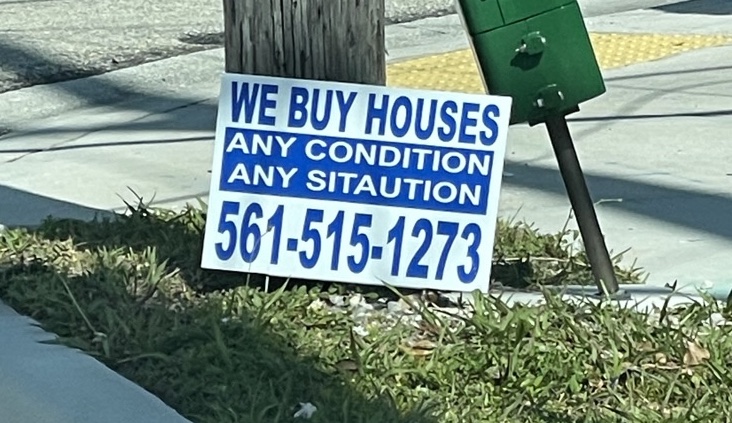
Housing Notes Reads
- New York’s Airbnb Crackdown, in Force for Two Years, Hasn’t Improved Housing Supply [Wall Street Journal]
- Calculating Those Calculating Buyers And Sellers [Housing Notes]
- NYC’s Airbnb ban failed to lower rents or boost vacancies, report finds [New York Post]
- Seller beware [Business Insider]
Market Reports
- Elliman Report: Florida New Signed Contracts 8-2025 [Miller Samuel]
- Elliman Report: New York New Signed Contracts 8-2025 [Miller Samuel]
- Elliman Report: New York New Signed Contracts 7-2025 [Miller Samuel]


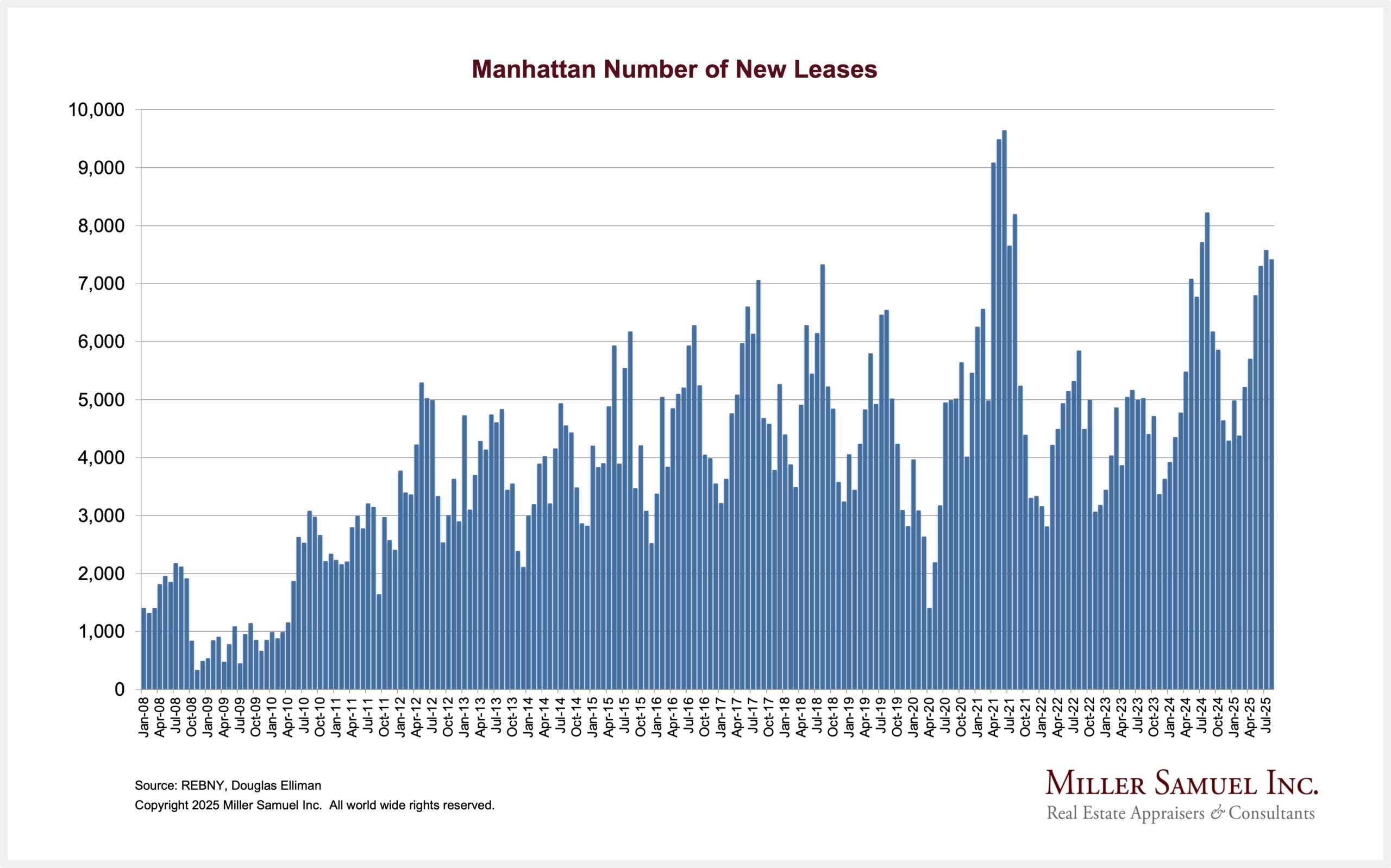
![[Podcast] Episode 4: What It Means With Jonathan Miller](https://millersamuel.com/files/2025/04/WhatItMeans.jpeg)